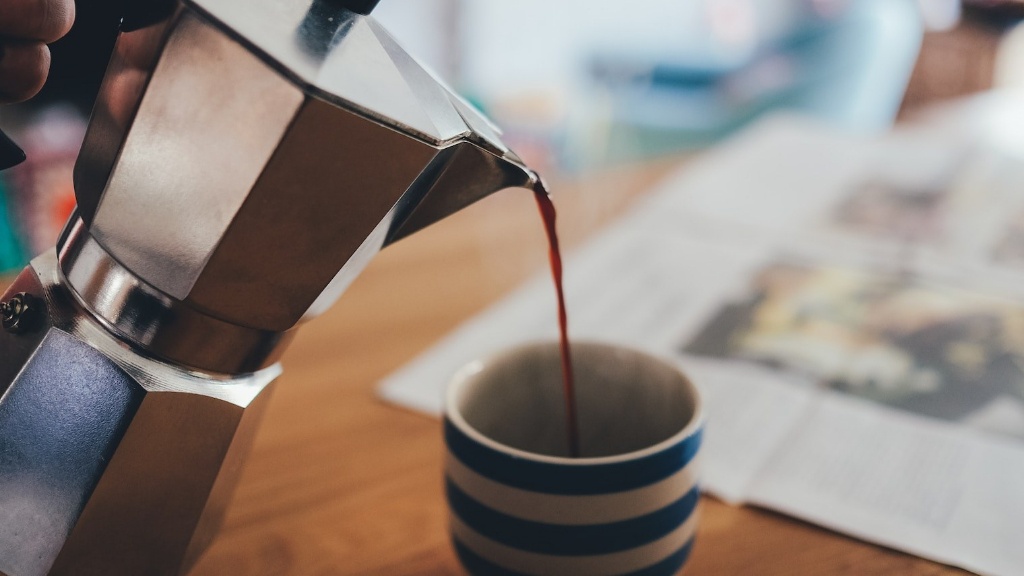Do you feel nauseated after drinking coffee on an empty stomach? Many of us are all too familiar with this uncomfortable feeling. But what causes it? It turns out, there are a few potential explanations for why some people experience nausea after drinking coffee on an empty stomach.
Firstly, coffee is a stimulant. It contains caffeine, which has an energizing effect. This means it can cause an increase in heart rate, blood pressure, and other bodily functions that can make one feel uncomfortable. Additionally, caffeine is an acidic substance and can irritate the stomach. When combined with the empty stomach, it can lead to nausea or other gastrointestinal distress.
Nutrition experts suggest that those who experience nausea after drinking coffee on an empty stomach should try eating a small snack first. This can help to buffer the effects of the caffeine and reduce the risk of nausea and other gastrointestinal distress. Additionally, it can help to control blood sugar levels, as drinking coffee on an empty stomach can cause a spike in blood sugar that can lead to nausea.
Other experts suggest limiting your intake of coffee. Drinking too much coffee can lead to overstimulation, which can increase the risk of feeling nauseous. Additionally, some suggest avoiding drinks that are very high in caffeine content such as energy drinks or espresso, as these can have a stronger effect on our bodies.
Finally, those who are sensitive to the effects of caffeine are more likely to experience nausea after drinking coffee on an empty stomach. People with this sensitivity should consider avoiding coffee altogether or limiting their intake to a few sips. Additionally, those who are prone to anxiety and other mental health issues should limit their caffeine intake as it can exacerbate these symptoms.
Lifestyle Changes
Making a few lifestyle changes can make a big difference in whether or not you experience nauseous after drinking coffee on an empty stomach. Firstly, keeping hydrated is key. Staying hydrated helps to reduce the effects of the caffeine, which can help to prevent the nausea. Additionally, regular exercise and getting enough sleep can help to improve overall health and reduce the risk of feeling nauseous.
Eating a balanced diet is also important. Eating a diet that is rich in fresh fruits and vegetables, whole grains, and lean proteins can help to ensure that your body is getting the nutrients it needs. Additionally, it can help to prevent spikes in blood sugar, which can lead to nausea in those who are sensitive to the effects of caffeine.
Finally, it’s important to pay attention to how much caffeine you’re consuming and to limit your intake as necessary. For those who are sensitive to the effects of caffeine, sticking to one cup of coffee a day can help to prevent nausea and other potential side effects.
Medical Treatment Options
If you’re experiencing frequent bouts of nausea after drinking coffee on an empty stomach, it may be time to see your doctor. They can assess your symptoms and help to determine the cause of the nausea. If the nausea is determined to be caused by caffeine sensitivity, they can provide a treatment plan to help you manage the symptoms.
Your doctor may recommend lifestyle changes such as drinking less coffee, getting enough sleep, and exercising regularly. They may also recommend eliminating certain foods and beverages that are high in caffeine or that are known to irritate the stomach.
Additionally, they may prescribe medications to help reduce the effects of caffeine or to help with nausea. For those with severe nausea, there are medications that can help to reduce symptoms and make one feel more comfortable.
Finally, for those whose nausea is caused by anxiety or other mental health issues, therapy is often recommended. Seeing a therapist can help to address the underlying issues and provide strategies for managing symptoms.
Home Remedies
For those experiencing occasional nausea after drinking coffee on an empty stomach, there are a few home remedies that can provide relief. Firstly, drinking plenty of water can help to neutralize the effects of the caffeine and reduce the risk of feeling nauseous. Additionally, drinking herbal teas such as ginger or peppermint can help to settle an upset stomach and reduce nausea.
Eating a small snack before drinking coffee can also help to reduce the risk of feeling nauseous. Simple snacks such as crackers or toast can help to reduce the effects of the caffeine and provide relief from nausea.
Finally, taking a hot bath or shower can help to relax the body and reduce the effects of the caffeine. Additionally, the warmth of the water can help to reduce the feeling of nausea and provide relief.
In Conclusion
Nausea is a common side effect of drinking coffee on an empty stomach. While the cause of this discomfort is still unknown, experts believe it could be due to caffeine sensitivity or an increase in heart rate and blood pressure. For those experiencing occasional bouts of nausea, there are several home remedies and lifestyle changes that may provide relief. However, those with severe or frequent nausea should consider speaking to a doctor.




